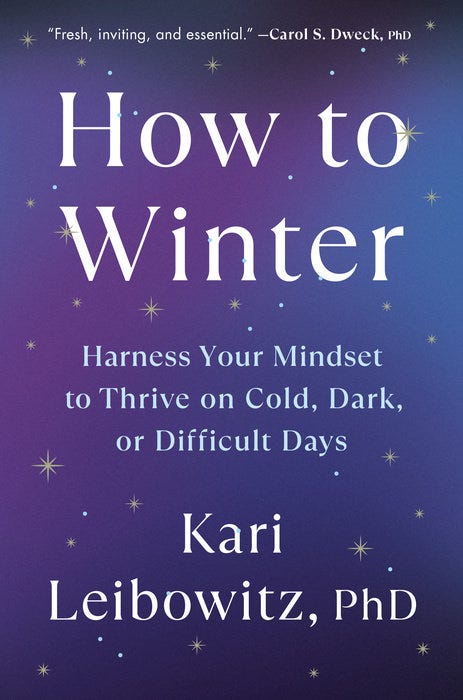How to overcome the "what-the-hell effect"
The smallest setbacks can easily derail our efforts to meet our long-term goals. Here's how to deal with disappointment and failure more effectively.
Hello, and welcome to the second edition of 60-Second Psychology! Thanks to everyone who has subscribed so far.
Last time, I wrote about the science of goal setting for your New Year’s resolutions. If you’re like me, you might have found that life has already got in the way of your good intentions. I had hoped to release this newsletter every weekend, for example, and I have to admit that once I failed to meet this target, a small part of me felt like giving up on the project entirely.
In psychology, this reaction is known as the “setback effect” – or, more colloquially, the “what-the-hell effect” – and it’s a common barrier to successful behaviour change. The reason seems to be a reduced sense of “self-efficacy”. Put simply, each failure knocks our confidence in our capacity to stick to our goal, which weakens our willpower and motivation to continue.
We can see this in a series of studies by Pam ten Broeke and Marieke Adriaanse at Leiden University, who examined hundreds of participants’ success at sticking to their diets, exercise regimes, and money-saving schemes. Ten Broeke and Adriaanse found that each time the participants slipped up, their ego took a hit, which reduced the chances that they would maintain their new habit in the future too.
The best antidote to the what-the-hell effect may be treating ourselves with more compassion – as Ten Broeke and Adriaanse found in a follow-up study involving 300 dieters. At the start of the experiment, some were given a short text that taught them to view their missteps more forgivingly:
“Research has shown that whether you can get back on track actually has a lot to do with the way people think about the causes of their unhealthy eating behavior,” they were told. “A helpful way for you to think about why you failed your diet is to focus on the factors outside of you, such as the environment, or the people around you that influenced your behavior. These factors have a tremendous, but often underestimated, effect on your eating behavior … Acknowledging these kinds of external factors may be a helpful way to get you back on track.”
As hoped, the people who had read this text were considerably better at sticking to their diet, compared to participants in a comparison group who had not learnt how to reappraise their lapse in self-control. The same philosophy could apply to any other domain. If you were driving across the country, you would not cancel the whole journey after a single wrong turn – and we should adopt the same principle with any long-term goal.
There is now a huge body of scientific literature on the benefits of self-compassion, which also extends to our mental and physical health. We can be healthier, happier and more effective by being a bit kinder to ourselves.
Book of the week - How to Winter: Harnessing Your Mindset To Thrive in Cold, Dark or Difficult Times by Kari Leibowitz
If you live in the northern hemisphere, you may be grappling with the January blues, as the darkness outside seems to invade our souls. Kari Leibowitz is a Stanford-trained psychologist, and her research has shown that people in Scandinavian countries often have a more positive “wintertime mindset” that appears to protect them from Seasonal Affective Disorder. In How to Winter, she describes how we can cultivate the same attitude – with some general lessons in stoicism and resilience along the way.
“How we approach winter is a pretty good proxy for how we approach other dark, difficult seasons in our lives,” she writes. “How do we respond to situations out of our control? How do we respond to circumstances we did not choose?... The strategies I observed in my research on how people around the world approach winter can help us weather any storm – snow or otherwise.” I interviewed Leibowitz for the Guardian and I’d thoroughly recommend that you give her book a read.
One of the reasons that I fell behind with my newsletter was a whistle-stop trip to Palermo to visit my friend and colleague Alessia Franco. Watch this space for a forthcoming article we’ve co-written on cross-cultural friendships.
If you like what you’ve read, please consider sharing with your social networks and/or the people you love - and don’t forget to click subscribe if you want more content like this.
See you next time!
David




Happy new year! And well done for keeping up the resolution. I am grateful for the help keeping mine.